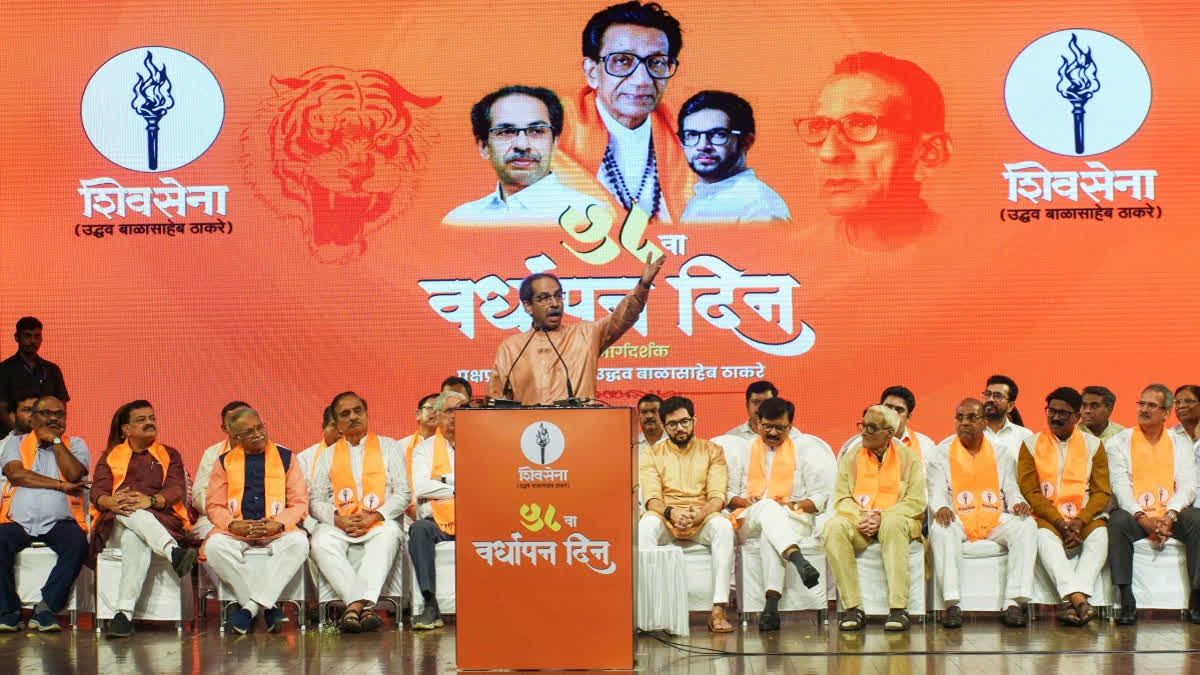Hyderabad: On 10 January 2024 the Speaker of the Maharashtra Legislative Assembly, Rahul Narwekar, adjudicated on the petition and counter-petition filed by Uddhav Thackeray and Eknath Shinde groups of Shiva Sena against each other for disqualification of Members of the Legislative Assembly, who had purportedly either left them or not joined them.
The Speaker did not disqualify the members of either of the groups but instead proceeded to decide which constituted the real Shiv Sena. Narwekar said that he had relied on three major things to reach his conclusion: Shiv Sena's constitution, the party's leadership structure, and its legislative majority.
The Speaker was of the view that no party leadership can use the provision of the Tenth Schedule of the Constitution of India (also known as the anti-defection law) for dissent or indiscipline within the party. He, therefore, found no valid ground to disqualify 16 legislators of the Eknath Shinde faction who went incommunicado. He also rejected the petition for disqualification of 14 legislators of the Uddhav Thackeray group, as the whip was not physically served on them. In coming to this conclusion the Speaker took note of the fact that Sunil Prabhu, who belonged to the Uddhav Thackeray faction had ceased to be the whip from 21 June 2022, when the party split took place, and was replaced by Bharat Gogawale of the Eknath Shinde group.
On 11 May 2023, a Constitution bench of the Supreme Court had ruled that the Governor was wrong in asking the Chief Minister, Uddhav Thackeray, to undergo a floor test and that the Speaker too was wrong in recognising the Eknath Shinde faction apponitee as the party's whip. The court had asked the Speaker to decide on the petitions for disqualification and, among other things, determine prima facie which among the two factions was the real political wing of the party.
The Speaker's verdict drew upon some aspects of the Supreme Court's order and went into details of Shiv Sena's constitution and held that the 1999 document submitted to the Election Commission was the valid one. He rejected the Uddhav Thackeray group's contention that the amended constitution of 2018 should be relied on, because no organisational elections were held in 2013 and 2018.
The Election Commission too had granted Shinde’s faction the party symbol on the ground that it had only the 1999 version of the party’s constitution on record. The amended 2018 version of the party's constitution had not been communicated to the poll panel. The Election Commission did not go by the strength of the organisational wing in its verdict and relied on the strength of the legislative wing because of the undemocratic nature of the party's Constitution of 2018 placing power in the hands of the party chief.
It is to be noted here that the Supreme Court had observed that the percentage of Members of the Legislative Assembly in each faction is irrelevant to the determination whether a defence to disqualification is made out. However, the court had conceded that the Speaker may have to decide on which faction is the real party when adjudicating a question of defection. It favoured reliance on a version of the party constitution and leadership structure submitted to the Election Commission before the rival groups emerged. It is these observations that the Speaker utilised to determine which group is the real party.
The matter may not, however, end here as the Thackeray group is bound to go to the Supreme Court on the ground that the Speaker’s ruling is not in line with the direction of the Supreme Court insofar as it fails to decide on the question of disqualification. It may be alleged that the decision is political and not legal. As long as defection disputes are in the hands of the Speakers, and not any independent authority, political considerations are undoubtedly bound to cast a shadow on such rulings.
Since the 2019 Assembly elections, Maharashtra has been in political turmoil. That will continue. The Speaker has to decide another factional dispute, namely that of the Nationalist Congress Party, by 31 January 2024.
Read more:



